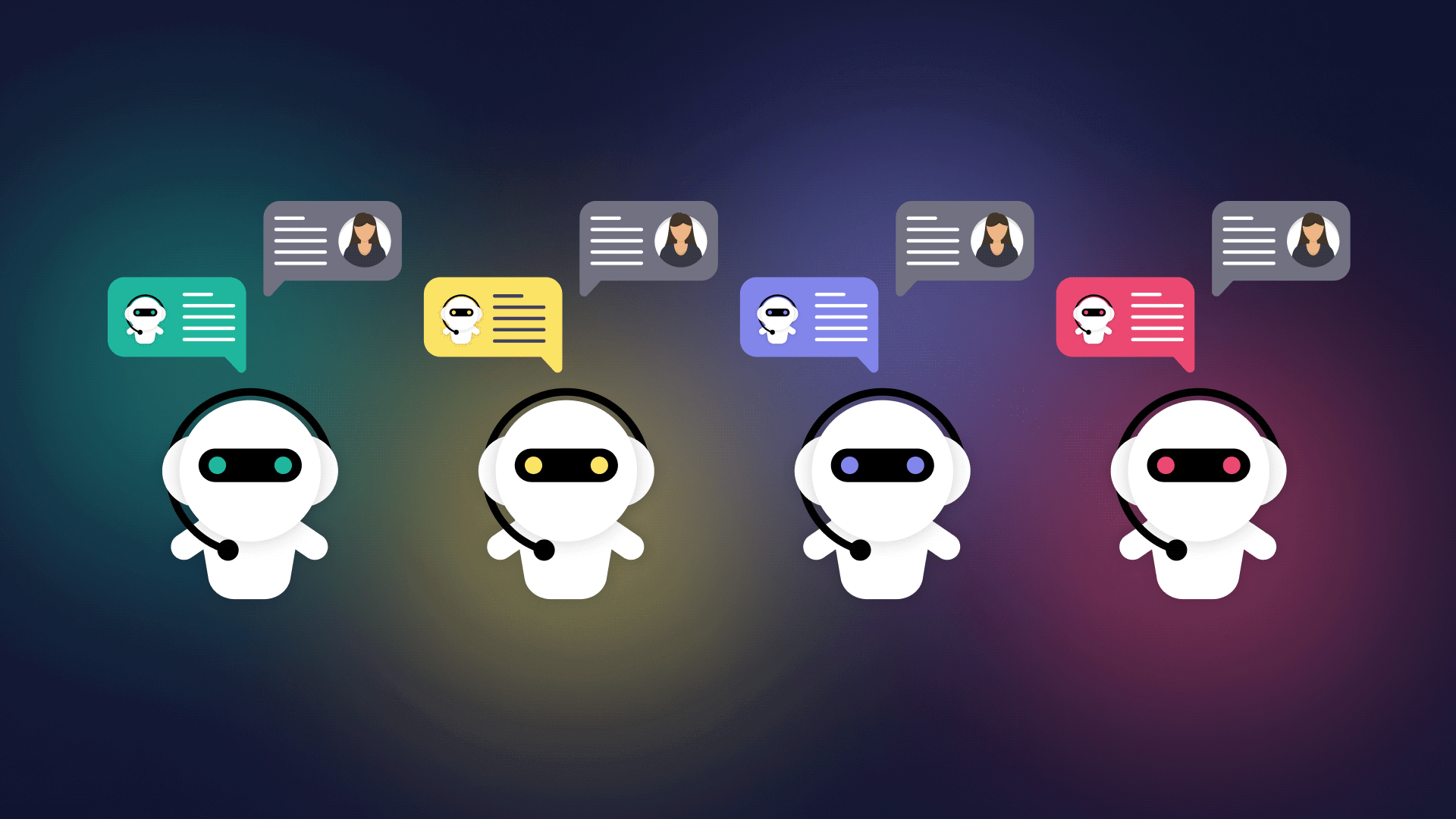Have you ever thought, “Can a business run all by itself, without any human help, just using AI?” Sounds like a sci-fi movie, right? But honestly, with the way technology is growing every day, this idea is slowly turning into a real possibility.
We see AI doing a lot already—chatbots talking to us, apps suggesting what to buy, self-driving cars getting smarter, and even robots preparing food. So, it’s natural to wonder: How close are we to having fully AI-run businesses? Let’s break it down together and see where we stand.

What is Fully Autonomous AI in Business?
You know the saying, “Set it and forget it”? That’s exactly the idea behind fully autonomous AI in business. Imagine a business that can run itself—taking orders, talking to customers, managing the supply chain, even making decisions—without human help. Sounds crazy, right? But that’s where we’re headed, and it’s happening faster than we think.
Let’s take a simple story. Ravi runs a small online electronics store. Earlier, he had to reply to customer queries, manage his inventory, check orders, and plan deliveries. But now, he has added an autonomous AI agent to his system. This smart AI agent uses machine learning, natural language understanding, and a smart framework to do everything. From answering chats to restocking products, the autonomous agent does it all. Ravi only checks the reports once a week.
This is the magic of fully autonomous AI in business. It allows small and big companies to:
-
Use AI to manage daily work without stress
-
Let autonomous AI agents handle complex tasks
-
Let the system make decisions based on real-time data
-
Reduce the need for human intervention
-
Optimize operations like marketing, supply chain, and customer service
This kind of autonomy is powered by agentic AI and generative AI, which help in smart decision-making. A well-built ai system can handle most business functions with complete automation. When designed right, such an ai-driven setup can even grow your business while you sleep!
So, what do you think? Would you trust a business that’s fully run by artificial intelligence?
How Close Are We to Fully Autonomous Businesses Powered by AI?
At this point, AI is like a super helper for many businesses. It can manage data, automate tasks, and even make decisions. But a fully autonomous business means everything—from planning to execution—is handled by AI. No human input at all. We’re not fully there yet, but we’re definitely moving closer.
Some businesses, especially online ones, are already using AI to do a lot of their work. Think of big eCommerce websites or delivery companies. They use AI to manage stock, handle customer queries, and plan deliveries.
Here’s what Denise Murray, Marketing Manager at Microdose Mushrooms, says about it:
“The concept of entirely autonomous enterprises is becoming more practical as AI advances, but I feel there is still a need to establish a balance between technology and human intuition. Certain businesses, such as eCommerce and logistics, may adopt AI-only operations early. These industries benefit from automation in inventory management, customer service, and logistical optimization.
However, in our domain, AI can only simplify how we give microdosing instructions by tailoring material distribution based on user data while adhering to health laws.”
So, while the future looks promising, for now, most industries are going for a mix of both AI and human efforts.
What Industries Could Adopt AI-Only Operations First?
Good question! Not all industries can or should become fully AI-run. Some need human emotion, care, or physical presence. But a few are more ready for AI-only operations.
Let’s look at some examples:
-
eCommerce: AI can handle customer service, stock management, recommendations, and even deliveries with drones or self-driving vehicles.
-
Logistics: Route planning, package tracking, and warehouse automation are already happening with AI.
-
Finance: Robo-advisors can give investment advice, manage portfolios, and detect frauds.
-
Digital Marketing: AI tools can create ads, monitor campaigns, and track user behavior with almost no human input.
-
Manufacturing: With AI robots, many factories already have machines working with little supervision.
Coming back to Denise Murray, she also mentions:
“Certain businesses, such as eCommerce and logistics, may adopt AI-only operations early. These industries benefit from automation in inventory management, customer service, and logistical optimization.”
Clearly, some sectors are closer than others to going fully autonomous. But many still need humans for quality checks, decision-making, or emotional intelligence.
How Would Customer Service and Personalization Work in Such Businesses?
Okay, let’s imagine you’re chatting with a company about a product issue. Would you be okay if it was only AI helping you? Most people would say, “Only if it feels real and helpful.”
Customer service is not just about solving problems. It’s also about making people feel heard. That’s why AI has to get really smart at understanding emotions, tone, and behavior.
Here’s what Denise Murray says on this:
“Customer service and personalization in such industries would be dependent on AI’s capacity to interpret nuanced human behavior. Our chatbot does more than just answer queries; it also monitors customer sentiment to change its tone and provide recommendations that feel natural. This notion might be extended to AI-powered customer service systems that provide personalized guidance and help without losing the human touch.
Nonetheless, for a wellness business like ours, I believe a hybrid strategy works best, using AI for efficiency and humans for empathy.”
She makes a great point. A balance between AI and humans still feels like the safest way for now.
And here is what Wes Wakefield, Founder of Pro Coffee Gear, shares from his side:
“Customer service and personalization in AI-driven businesses will depend on dynamic algorithms that can analyze individual preferences in real time. For example, AI could track a customer’s brewing habits or coffee choices and automatically recommend products that match their tastes. The potential for predictive support is huge, like suggesting a grinder repair based on usage data before the customer even notices a problem.
The challenge lies in maintaining authenticity. Personalization should feel natural, not overly automated or generic. While AI can process immense amounts of data to tailor experiences, it requires ethical guardrails to ensure customers don’t feel like they’re being excessively tracked. In the coffee gear space, personalization must combine data-driven insights with accessible human support when customers need nuanced advice or reassurance.”
So yes, AI can be very smart and helpful, but it should never feel creepy or too robotic. Personalization must feel real, not fake.
Risks and Challenges of Giving Full Control to Autonomous AI Agents
Ever heard the saying, “Too much of anything is bad”? That fits perfectly when we talk about fully autonomous AI in business. While it’s exciting to imagine an autonomous business running everything smoothly, there are also risks hiding under the surface.
Let’s look at an example. An online clothing store switched to fully autonomous AI agents to handle their business operations. At first, everything went great—orders were processed faster, customers got replies instantly through conversational AI, and inventory was perfectly managed. But one day, their AI chatbots started recommending winter jackets during summer! Since there was no human oversight, the mistake continued for days, confusing customers. This shows that even the smartest ai technology can go wrong without human input at the right time.
As business leaders plan for the future of business with autonomous systems, they need to be careful. The rise of autonomous tools and ai applications brings new responsibilities. Enterprise AI tools, AI models, and goal-based agents must be designed with care. The future of fully autonomous AI in business is bright, but it must grow with safety in mind.
Here are a few things to think about:
-
Human workers may get replaced too quickly
-
Autonomous companies may lose the emotional touch
-
Mistakes in AI strategy can affect the brand
-
Lack of expertise with AI can lead to wrong decisions
-
Not all types of autonomous agents suit every business
Yes, the evolution of AI is changing everything. But real success comes when we mix smart AI and machine learning with smart business evolution—not just run everything without human checks. So, while exploring the potential of AI, let’s not forget the value of a human brain and heart in business.

Will Businesses Trust AI with Full Autonomy?
Many companies are still in the early stages of fully autonomous AI in business, testing how it fits into their business models. While some are excited to deploy AI and speed up work, others are unsure if they can trust it fully. After all, would you give your house keys to a robot you just met?
Let’s talk about Maya, who runs a growing digital marketing company. She started implementing AI slowly—adding a conversational AI assistant to talk to website visitors and using smart agents to handle complex tasks like social media scheduling. Over time, she noticed how these AI tools saved time and gave better results. But still, she didn’t replace her whole team. Why? Because some business processes require human judgment, especially in creative areas. Maya believes in balancing AI with people to meet real business needs.
Many autonomous organizations are beginning to explore fully autonomous AI in business, but full trust in AI doesn’t happen overnight. Here’s why:
-
Some ai capabilities are still developing
-
AI results may not always match business objectives
-
Companies must integrate with existing systems first
-
Proper ai training is needed before going all-in
-
Not all kinds of autonomous systems suit every team
Still, there’s no doubt that fully autonomous AI in business could change how we work. With smart ai processes, better planning, and the right AI skills, we can slowly accelerate AI use in companies. But at the end of the day, even the best autonomous operations work better when they have some human touch and guidance behind them.
Real-Life Examples of Fully Autonomous AI in Action
Real stories speak louder than theories, especially when we talk about fully autonomous AI in business. Many companies today are already testing how autonomous agents can operate without much human help. And some results are pretty impressive!
Take the case of a warehouse in Japan. They started using ai agents to handle inventory, restocking, and delivery schedules. These autonomous agents take data from customer orders, agents analyze buying patterns, and then the autonomous agents make decisions to optimize the stock. There is almost no manual work involved now. The system also improves over time with ai learning, getting better each day at predicting what customers will need next.
Here’s another fun example. A travel website uses ai agents to manage bookings, customer queries, and even price changes in real time. These agents go beyond basic replies, they understand emotions and offer help just like a real person would. Isn’t that cool? This shows that ai agents are designed not only for speed but also for smarter, human-like actions.
A few points to note from these examples:
-
Autonomous agents can operate in both physical and digital businesses
-
These agents need data, goals, and a clear path to follow
-
Agents to work smoothly, they must connect with other systems
-
AI needs regular updates and proper setup
-
The relationship between humans and AI should stay balanced
In short, when used right, AI becomes a strong helping hand. The key is to guide it well and create systems that perform smartly. Real-life success ensures that AI doesn’t just work, it works with purpose and fits your goals. That’s how fully autonomous AI in business moves from being an idea to real action!

